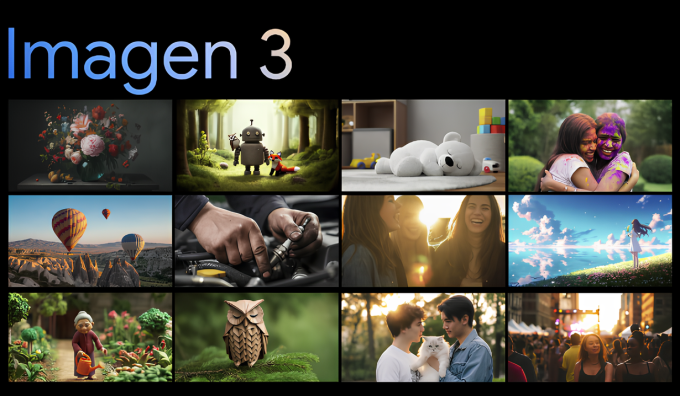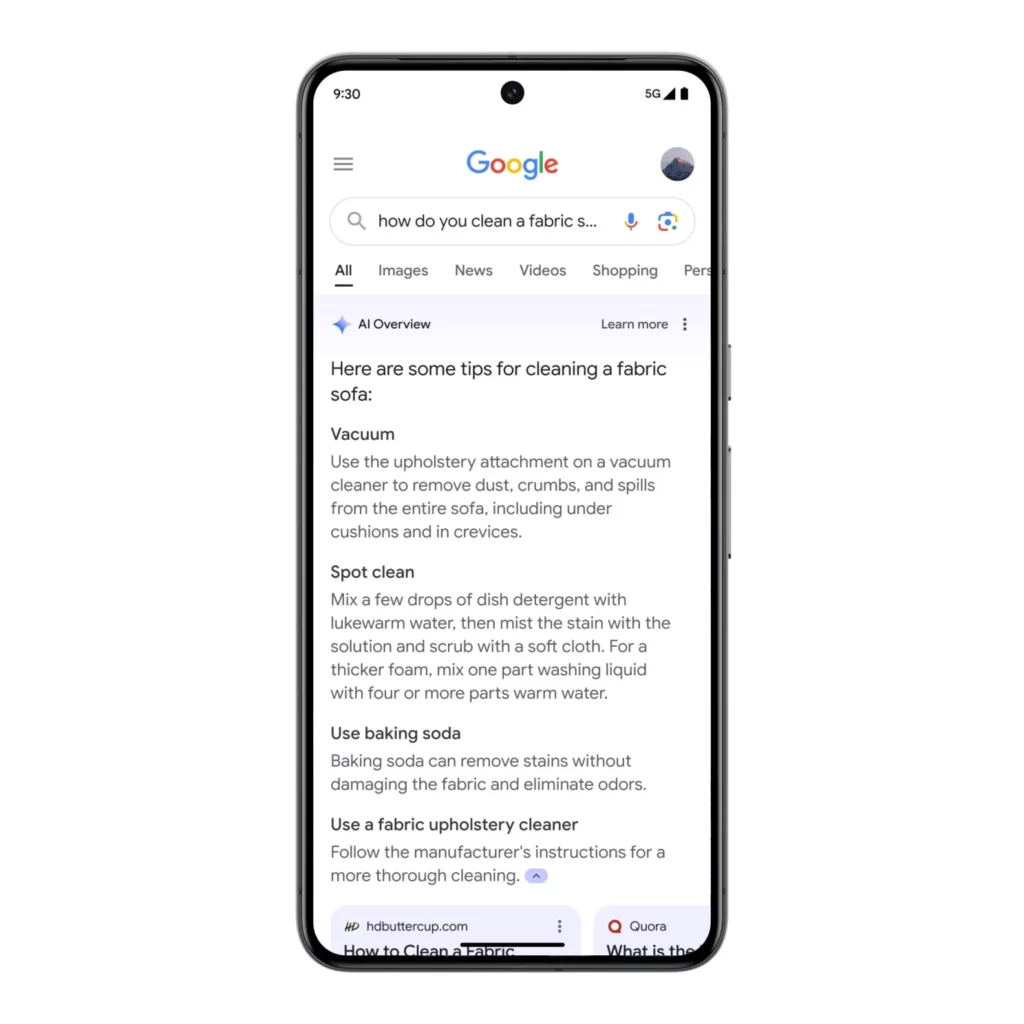
Google’s annual I/O developer conference, held this Tuesday, marked a significant advancement in its artificial intelligence portfolio, with a series of new products and updates centered on AI technologies. The event showcased enhancements to existing AI models, introduction of new search features, and pioneering AI hardware, emphasizing Google’s commitment to maintaining its leadership against rivals like OpenAI.
Gemini AI Updates
The conference highlighted significant upgrades to the Gemini AI model. Google introduced Gemini 1.5 Pro, an enhanced version designed to manage larger data volumes—capable of summarizing up to 1,500 pages of text.
Alongside this, Google launched Gemini 1.5 Flash, a smaller, more cost-effective AI model intended for quicker tasks such as summarizing brief conversations or extracting information from large documents. These updates aim to improve productivity tools across Google’s suite, including Gmail and Google Docs, where they will enhance the capability to summarize and analyze content.\
Sundar Pichai, Google’s CEO, announced improvements in Gemini’s language translation abilities, which will soon support 35 languages globally. A notable application within Gmail will allow Gemini 1.5 Pro to analyze attachments, summarizing PDFs and videos, facilitating users to catch up on missed content efficiently.
This feature is designed to streamline tasks such as email management, where, for instance, Gemini could provide summaries of multiple communications to assist users in decision-making processes like choosing a contractor.
Google Veo, Imagen 3, and Audio Overviews
The event also unveiled Google Veo and Imagen 3, advanced models aimed at generating high-definition video and highly realistic text-to-image translations, respectively. These tools, which promise to minimize visual artifacts, will initially be available to select creators and later integrated into Vertex AI—Google’s platform that enables developers to train and deploy AI applications.

Google introduced “Audio Overviews,” a feature that generates audio summaries from textual content. This aims to enhance accessibility and engagement by providing interactive audio explanations. The “AI Sandbox” was another highlight, offering a variety of generative AI tools that enable users to create custom music and sounds from textual prompts, reflecting Google’s exploration into the creative potentials of AI.
AI in Search
The search enhancements revealed by Google introduce a new feature called “AI Overviews” which will debut in Google Search in the U.S. starting Monday. According to Liz Reid, head of Google Search, this feature will display a concise summary at the top of the search results page for complex queries, providing quick insights drawn from a synthesis of information across the web. For instance, a search query about the best way to clean leather boots would yield an “AI Overview” showing a step-by-step cleaning process.

Further expanding the capabilities of Google Search, the company plans to integrate assistant-like planning features directly within its search interface. This will enable users to perform complex search tasks such as creating a “3-day meal plan for a group that’s easy to prepare,” offering them a comprehensive array of recipes and meal ideas sourced from across the web.
In pursuit of enhancing its “multimodality”—the integration of multiple forms of media—Google announced it would begin testing the ability for users to interact with the search engine through video uploads. This feature allows users to film a real-world problem, such as a malfunctioning record player, upload the video, and ask Google Search to diagnose the issue. In a demonstration, Google Search was able to identify the model of the record player and suggest potential fixes based on its analysis.
Additionally, Google is testing a new feature within Google Workspace named “AI Teammate.” This feature aims to create a searchable compilation of a user’s work, aggregating information from messages, email threads, PDFs, and documents. For example, a prospective business founder could inquire, “Are we ready for launch?” and AI Teammate would analyze the available data across Gmail, Google Docs, and other Workspace applications to provide a summarized response.
Project Astra and Future Directions
Project Astra, a prototype AI assistant being developed by Google’s DeepMind, represents a significant step toward creating a highly responsive AI capable of aiding users in real-time. This project aims to develop an AI assistant akin to J.A.R.V.I.S. from the Marvel Universe, capable of handling complex tasks and interactions seamlessly.
AI Hardware
The conference also spotlighted Google’s forthcoming Trillium TPU, its sixth-generation tensor processing unit, which will be available for cloud customers in late 2024. In a related announcement, Google confirmed its plans to integrate Nvidia’s Blackwell GPUs into Google Cloud by early 2025, emphasizing a longstanding partnership with Nvidia aimed at enhancing Google’s large-scale AI tools.
Related News:
Featured Image courtesy of Google
